OVERCOMING MY FEAR OF WATER - TIPS FOR BEGINNERS OF ALL AGES (KIDS, ADULTS)
Swimming is a sport that isn't natural to everyone. Walking, running, or biking feel automatic, but swimming asks us to move differently, in a new environment. Especially, if we want to learn different swimming styles.
It takes coordination, breath control, and patience to feel comfortable in water.
The good news? Anyone can learn to swim with the right mindset and a few simple steps.
This article is your roadmap to feeling calm and confident in the water. We'll start by understanding the mindset that causes fear and then walk through a step-by-step progression to help you relax and feel at home in the pool.
Dive Into: Your Roadmap to Water Confidence:
- ⚡ Quick Summary: How to Overcome Fear of Water
- 🎧 Listen: Fight the Fear of Water Debate (Audio Deep Dive)
- 🖼️ Gain Confidence in Water Infographic
- The Mindset: 5 Keys to Overcoming Fear
- Step 1: Getting Comfortable in Shallow Water
- Step 2: Blowing Bubbles and Breathing Out
- Step 3: Learning to Float and Stand Up
- Next Steps: Building on Your New Confidence
- Frequently Asked Questions
⚡ Quick Summary: How to Overcome Fear of Water
Short on time?
Get the key highlights from this article in just a few minutes. This video summary walks you through the 5 mindset shifts and the 3 essential steps to floating, perfect if you want a quick visual overview of the concepts before heading to the pool.
Mindset Before Entering the Pool
1. The horizontal position Swimming happens lying down. This horizontal position feels unnatural for many.
Beginners often feel like they'll "fall" or lose control, which leads to lifting the head and tightening muscles. Try thinking of it instead as lying down on a soft bed (supported, safe, and weightless).
2. Relaxation is everything When you lie down to sleep, your body loosens up. In water, the same rule applies. The more relaxed you are, the easier it is to float.
So listen to Frankie and RELAX.
3. Skip the floatation gear Kickboards, noodles, or belts may seem comforting, but they teach dependency.
Learn to float on your own and build confidence naturally. If you need extra peace of mind, a 360swim safety buoy is a great backup.
4. Remember to breathe Do not hold your breath. Each time you put your face in the water, start exhaling bubbles gently through your mouth or nose. If you get water up the nose, try these tips first.
Breathing calms your body and helps you feel in control, essential for overcoming fear. If you struggle with breathing, read this drown-proofing advice.
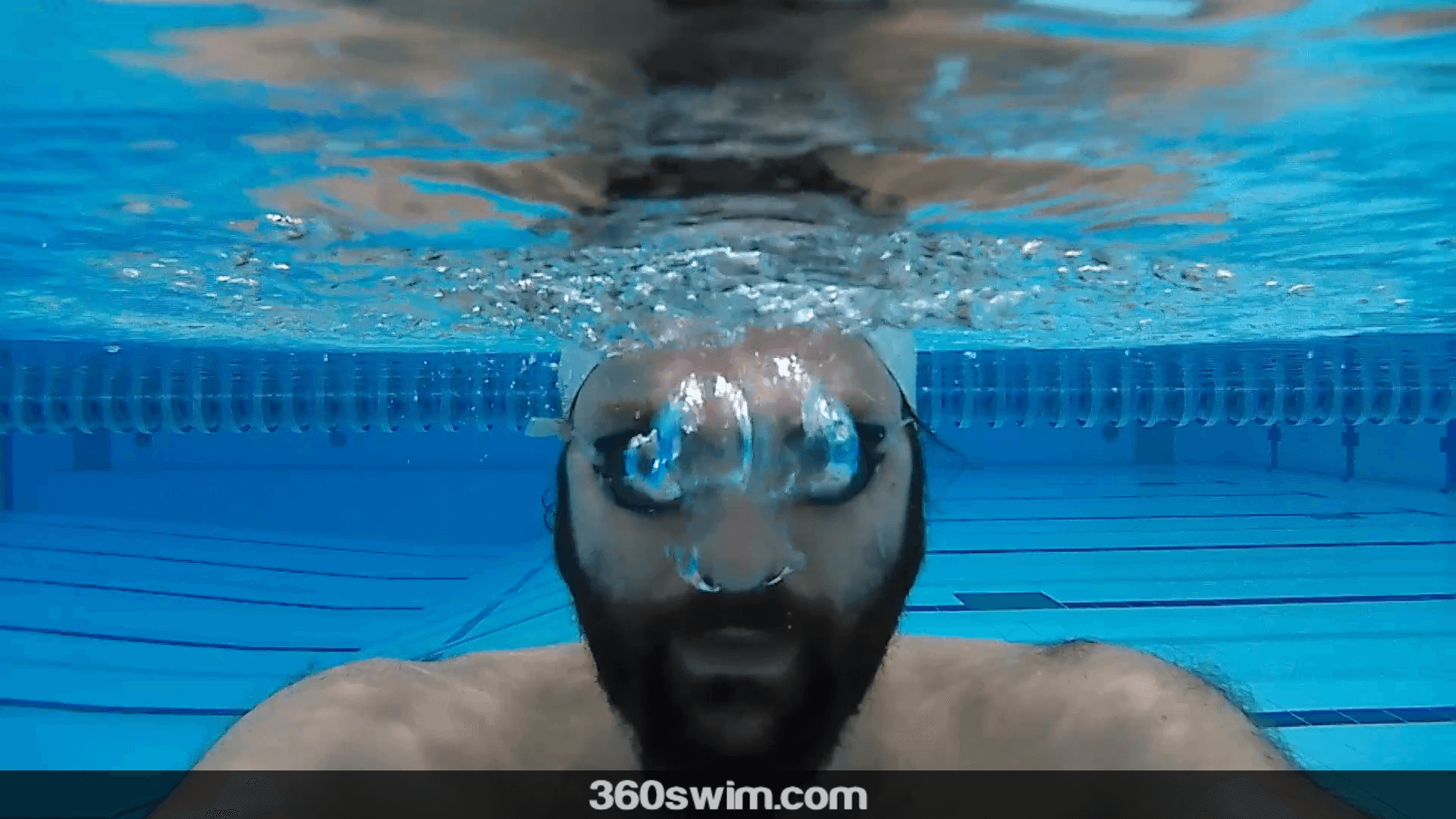
5. Water is your friend It supports you more than you think. Countless people learned to swim before you, so why shouldn't you as well.
🎧 Listen: The Roadmap to Water Confidence (Audio Deep Dive)
Tired of reading? Listen to the full breakdown on this topic while you multitask.
In this episode, we go deeper into the psychology of why we fear the water. We discuss why the "horizontal position" feels so unnatural, why you should actually skip the kickboard at first, and walk you through the relaxation drills step-by-step.
Step 1: Getting Comfortable in Shallow Water
Now let's get to the good stuff. You are probably asking, so what do I do in the pool? How do I start?
If fear is holding you back, start small.
Stand in the shallow end, hold the wall, and gently squat until your chin touches the water.
Breathe easily.
Once that feels okay, go a little deeper and let your face dip below the surface.
Take your time, move slowly, stay relaxed, and enjoy the gentle motion of going up and down.
If you have goggles, open your eyes underwater. Look around, explore the waterworld. (You're almost like Kevin Costner now.)
No floating aids needed, the water and the air in your lungs are your best support.
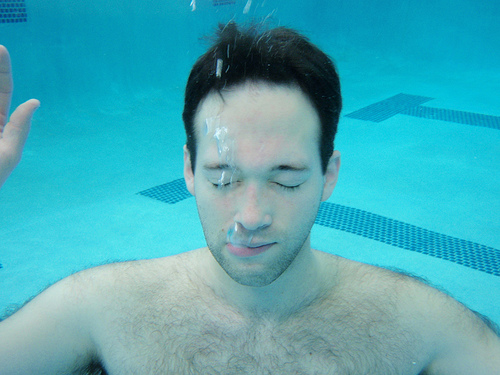
Step 2: Blowing Bubbles and Breathing Out
Once you're comfortable underwater, it's bubble time.
Hold the wall, squat down until your mouth is just below the surface, and start exhaling bubbles slowly.
Go up to inhale, then down to exhale. Repeat at your own rhythm.
This teaches relaxation and helps you get used to breathing patterns used in real swimming.
Try counting to five while blowing bubbles, or hum a tune through the water, it keeps you calm and controlled.
Step 3: Learning to Float and Stand Up
Now it's time to experience floating.
- Stand tall with arms by your side.
- Slowly lean forward. When your face is in the water extending your arms in front of you with palms down.
- Take a deep breath and relax your body, the water should touch the back of your head.
- Keep your chin slightly tucked and your eyes looking toward the bottom.
When ready to stand up, curl your knees toward your chest while keeping your arms forward and your face underwater looking down.
You'll naturally roll into a vertical position.
As your hips drop, sweep your straight arms down in a half-circle motion toward your hips.
Then when you are vertical, your face is still in the water, just extend your legs down to the bottom of the pool and rotate your head out of the water (backward).
Pro tip: try it with exhaling (blowing bubbles) when your head is underwater and you are about to put your feet down to stand up. This will help you relax more.
Once you can do this smoothly, you've built real water confidence.
Here is a short article on how to float properly.
🖼️ How to Gain Confidence in the Water - Infographic
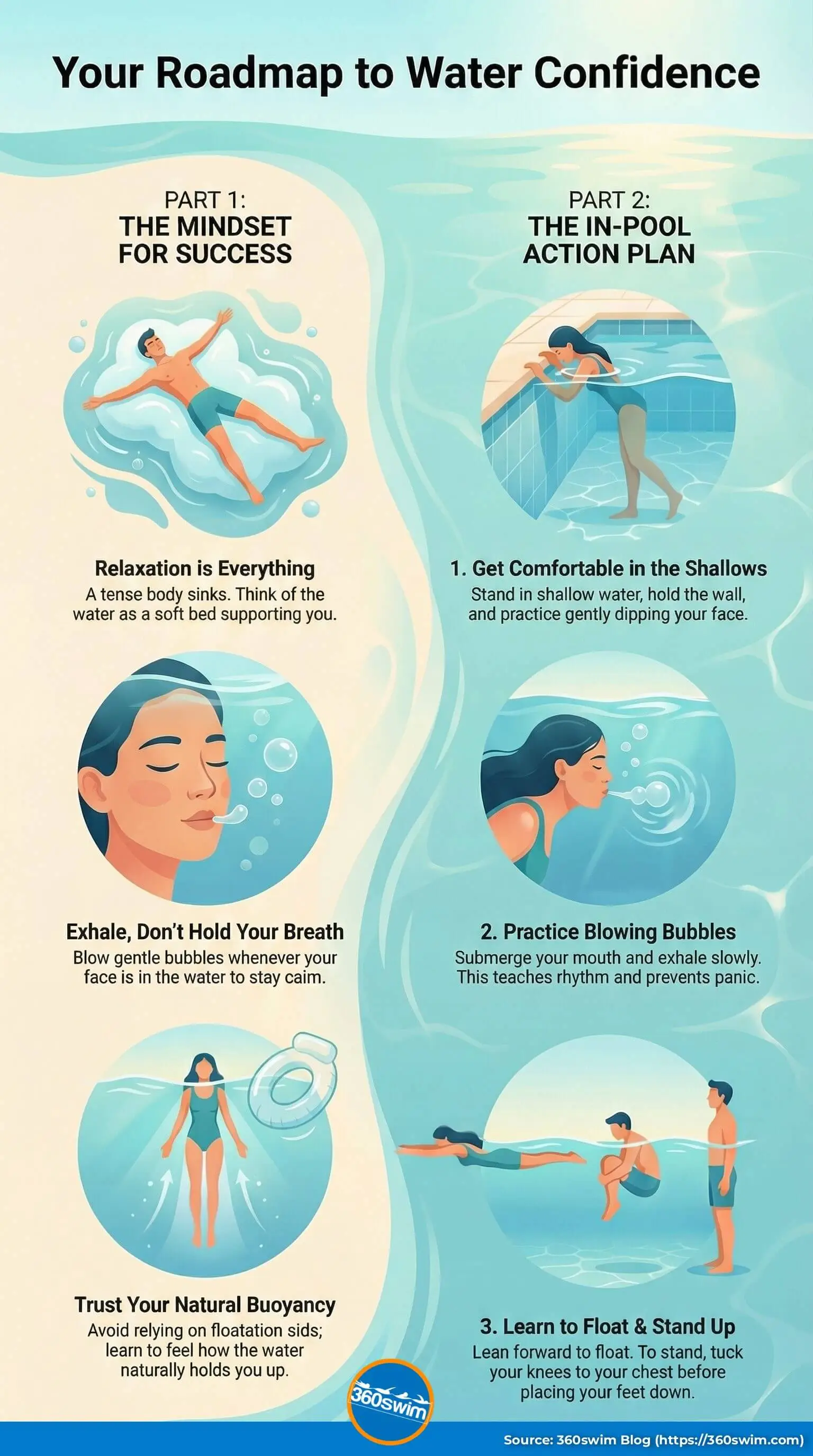
Next Steps: Building Confidence and Moving Forward
Once you've mastered these three steps, you're no longer just surviving in the water, you're starting to feel at home there.
Next, try floating backward or sideways while looking down (rotate your hips a bit). If water gets up your nose, use the natural human nose clip technique or a small nose plug.
Keep practicing until every movement feels easy and unhurried. When you can sink, float, and rise without fear, you're ready to learn balance and movement drills like the dead man's float and streamlining.
Relaxation, breathing, and trust are the foundation of every great swimmer.
So take a deep breath, smile, and let the water carry you, it's not your enemy; it's your teacher.
Good luck!
After you have handled the above with ease, feel free to move on to the next post where I show you how to start your first motion in H20 or just dive straight into some swim lessons posts.
Frequently Asked Questions
Why do I feel scared when my face goes underwater?
It's a natural reaction to losing control of breathing and vision. Start in shallow water, keep your hand on the wall, and pair gentle submersion with slow exhalation bubbles to stay calm and in control.
How can I overcome my fear of deep water?
Progress gradually. Get comfortable in shallow water first, then slowly move deeper while practicing relaxation and floating. Confidence builds as you realize the water supports you naturally.
Should beginners use floatation aids or kickboards?
It's better not to rely on them. Floatation aids can create dependency and poor balance. Instead, learn to trust your own buoyancy, but you can keep a safety buoy nearby for peace of mind.
Why do I feel like I'm sinking even when I'm relaxed?
Most likely you're exhaling too much air or lifting your head. Keep your lungs full and chin slightly tucked, your back of the head should touch the surface. Relaxing your body helps distribute buoyancy evenly.
How do I learn to float without panicking?
Start face down with arms extended, holding your breath and staying still. Once you feel the water holding you up, try small bubble exhales. Practice until floating feels effortless and safe.
What's the purpose of blowing bubbles underwater?
Blowing bubbles trains you to exhale steadily, keeps you relaxed, and prevents water from entering your nose. It also teaches rhythm for proper breathing later when you start swimming strokes.
When can I move from floating drills to swimming?
Once you can float, submerge calmly, and stand up without tension, you're ready to practice gentle glides and balance drills. From there, progress to simple strokes at your own pace.
Is it normal to feel dizzy after coming up from underwater?
Yes, especially if you hold your breath too long or stand up quickly. Try shorter underwater sessions, exhale slowly, and rise gently to avoid pressure changes that cause lightheadedness.
 LNURL1DP68GURN8GHJ7URP0YHRXD3SWDMKJMFWVDHK6TMVDE6HYMRS9A4HSCNCWFXSH3NN0H
LNURL1DP68GURN8GHJ7URP0YHRXD3SWDMKJMFWVDHK6TMVDE6HYMRS9A4HSCNCWFXSH3NN0H

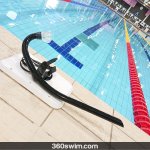


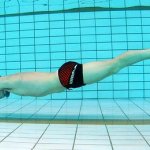






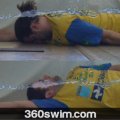
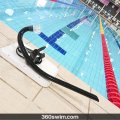

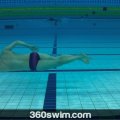
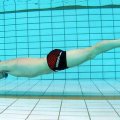





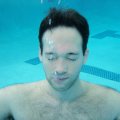
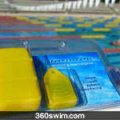



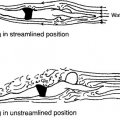
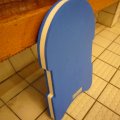




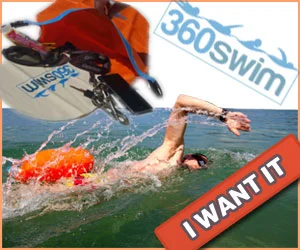

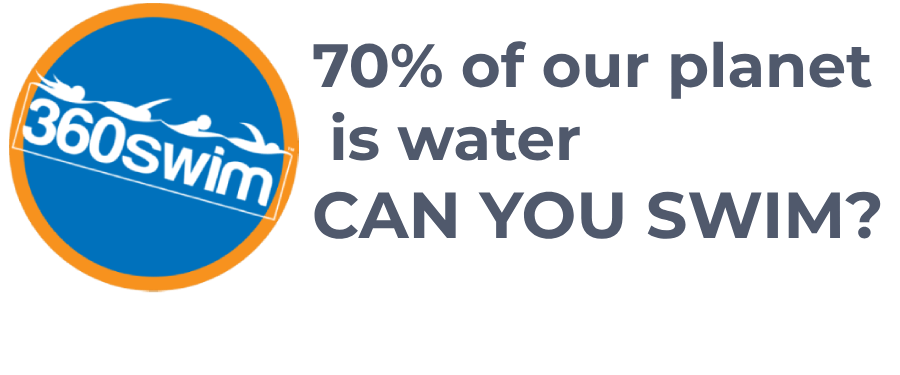

Comments (98)
I remember being taught something called the dead man's float at camp one year. For me, it was more of a dead man's sink. I would fill my lungs with air, relax every muscle in my body, and a few seconds later, I'd feel my toes brushing the bottom of the lake. Raising my head to take a breath was not an option.
I've aged since them, put on some more body fat, and now, I float just fine. I can even control what depth I float at by deciding how much air to keep in my lungs. But not everybody floats. I didn't, when I was a kid.
floating on water and it
was the first thing I taught
my son, Noah!
actually i didn't know how to swim .. but long time ago i tried that relaxed approach and I did stay afloat ..
I know how to swim now .. but i don't very often .. i should though.
If you get water in your nose, try to pucker up your upper lip, so it enclouses your holes, that helps for most (unless you have a beard :). And don't worry about using a noseplug. If it makes your swimming comfortable, then why not. After you get more used to water, you will be able to do it without. Keep it up.
Swimming is not hard, just takes a lot of time, practice and self-dedication to master. Yes, swimming classes can be helpful, however, you can learn on your own as well. Patience is the key. Also, if something doesn't work one way, try it another (one thing will work). Just remember, The more muscles you relax the more energy you can put into it, the faster you will swim.
Try searching on https://www.youtube.com for some swimming related words and you might find some good videos.
thank you very much for this, i always afraid by water, now i will follow your tips, and i think it will me sure thanks.
thank you.. i tried to start my friendship with water only just a day before... i will try this lesson next time when i go to beach...
1) float on your stomach
2) slowly bring your knees to your chest, so they are tucked in
3) assuming your arms are above your head pointing in the direction you are floating, make sure your palms are facing down, and move your straight arms towards your hips
4) since you were in a ball with legs tucked in, the arm movement toward your hips will rotate you into a vertical position, so the only thing that is left is to extend your legs to the bottom
tip: do not try to lift yourself out of the water, keep shoulders and butt in the water at all times.
@Pools: that is very unfortunate that you were taught by getting thrown into the water. This is not very good. If you are teaching your children, they need to trust you, so if you say you will catch them or you will not move from one spot, do exactly as you said. Otherwise, you are fighting an uphill battle. Psychology plays a big role in teaching children how to swim.
I tend to be one of those so-called people. I've been trying for all my life to get pass the tense part., I cannot even float on my back neither on my stomach and I've practicing regularly and I have followed swimming courses. I suppose not all humans are made to swim. So, If you are one of those, sorry to disappoint I think it might just be genetic...
I am 26 and i always wanted to swim...but i think i m scared of water. I just joined a swimming club, the coach is not very supportive, but my swim mates are nice, they help me...But all of them say that I dont relax my body..please tell me what to do to relax my body..I really wnat to b a gud swimmer.
I just started my first swimming lesson yesterday. Very disappointed with myself. I can't bring my hips and legs straight up in water in horizontal position. i try my best to float but I can't. Will I learn swimming.
i always scared from water but when i read it you kill my fear n now i join swimming club and i really floating in two days ........... wallah behtareen tip.
I wanna know that if i drawning down in the deep area what should i do.
thanks
1) if you are not comfortable in shallow area - DO NOT go to deep area :)
2) your fear should not be about drowning. if you are going to have a fear, you should fear not sticking to what you learned and panicing. As panic is the worst.
3) if you do happen to feel like you are going to sink and you are in the pool where the depth is 3-5m, then don't panic and just sink down to the bottom and push off to get a breath in.
Try reading this article about what to do when you feel like you are drowning
to Jealsa: thanks for sharing your fear. The compression of your chest is a common issue for many beginners. I'd say that the pressure on your chest is actually not as big as you think it is. What you feel as a huge pressure is escalated by your fear. In reality, it is not that big of a difference in pressure right at the surface of the water. To help with this, you should start in a shallower water and most importantly in a very warm water, so you are comfortable and eliminate any other discomforts. And slowly submerge up to your belly button first and see if you breathing is ok, then keep going by very slow increments to get deeper and deeper and always stop when you feel discomfort and hold the position until you are comfortable. You can also try to close your eyes and focus on something to relax you like laying on a sunny beach etc.
Getting water in your ears is just a feeling you can get used to after a lot of practice. You can just practice getting your head under the water while standing or kneeling on the pool bottom and each time try to stay under water for longer. Perhaps try to listen to any sounds you may hear under the water and that could keep your mind occupied and not worrying about how your ears feel.
jst keep on giving this sort of amazing tips for beginners.
to my back I went underwater and almost drowned, Suddenly I remembered instruction given to fellow swimmer , i.e to breathe in to come up.So I breathed in and came on surface. Is it right method ? or some other way ! Suppose water had been 15 meter deep would I have come up by breathing in or drowned
Breathing in is very important part of floating. Your lungs serve as balloon, so if you fill up the balloon (your lungs) with air, they will keep your body floating on the surface. Taking a nice long deep breath will bring more air into your lungs. Check out this post about how to relax in the water which goes through some sinking exercises.
2)How many minutes novice can float in horizontal as well as verticle position?
1)I am not sure how long can swimmer hold his breath without injury to brain, but there are people able to hold their breath for 10 minutes.
2)That is a difficult question and there is no answer to it. A person can float in horizontal/vertical position for a very very long time. If someone would feed you, you could float forever :) (assuming you keep taking breaths). Your body's buoyancy does not drastically change for you to sink. However, a novice swimmer/floater might be too rigid and not relaxed enough to be able to do this, so perhaps a few minutes.
if you struggle with floating, the following post can help you with learning how to float.
I wish I could float on my belly or front float for few minutes ,say 5-7 minutes ,recover my breath and start swimming again .Is it possible for me? because I need to swim 25 meters which is essential condition of my swimming pool to certify that one is swimmer. Kindly advice
If you want to float for 5-7 minutes, you should do it on your back as that is much easier to breathe.
The reason you get tired could be that your body is tense and you more than likely kick in a hectic manner which burns oxygen. Try to relax more :).
To float on your stomach for 5-7 minutes while also taking breaths, you'll need to learn the sculling technique.
Take my advice first stand in shallow water which is not deeper than your chest.Hold floater/kickborad on your hand but do not tie anything on your back, take deep breath hold it and lie on water in relaxed manner when you feel you are going down bring both legs forward to your chest together while holding floater by both hands ,raise your head and put your both legs and hand down.
This way you can stand in water which will build your confidence.
2swim.blogspot.com
Thanksto your encouraging words, i am not giving up yet!
Firstly I got her to float on her back with my hand under her head, then to lower her arms to point down with palms facing her feet, then to swing her arms forwards and upwards, which automatically swung her feet to the ground. After a few repetitions we reversed the process so that she could go from standing to the floating position. We then did the with her floating on her front.
The next step was with her floating on her front, with one arm forward and the other pointing down. taught her how to rotate onto her back
40mins later she could do all of the exercises without my help and after a couple of extra sessions I did not need to be close to her.
The rest was easy
Help!I can't seem to immerse my head in water, once I get to my ear level can't go further. My problem isn't holding my breath (or a fear of the water)because if i stand and then bend my head with my face into the water it's fine but when my head is vertical, i just can't seem to get in past my upper lip/the bottom of my ears. How do I overcome this.. i really wanna learn. I'm 34.